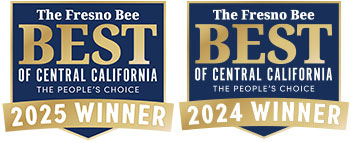General Information
Unless stated otherwise, all courses are non-repeatable except under certain conditions.
Open Enrollment
It is the policy of West Hills College Lemoore, unless specifically exempted by statute, that every course section or class, the average daily attendance of which is to be reported for state aid, wherever offered and maintained by the District, shall be fully open to enrollment and participation by any person who has been admitted to the College and who meets such prerequisites as may be established pursuant to Chapter 11, Division 2, Part VI, Title 5 of the California Administrative Code, commencing with Section 41820.
Unit or Credit Value
Each course carries a certain credit or unit value. The amount is indicated in parentheses at the right of the title. A lecture class requires the equivalent of one academic hour, (50 minutes) per week for each semester unit conferred. Laboratory classes require three academic hours, (150 minutes) per week for each semester unit conferred.
Prerequisite
Prerequisites are prescribed courses covering skills and/or knowledge that are normally expected to be acquired prior to enrolling in another course. The intent of prerequisites is to ensure that any student enrolling in a course in which specific information is required will have the necessary background so that every opportunity exists to experience success. Therefore, any course with a prerequisite presumes that subject matter will be acquired in a sequential way.
Students enrolling in courses without the appropriate prerequisite may find that they are ill-prepared to continue their studies in that course. Prerequisites are designed to enhance success. Please refer to the West Hills College Lemoore prerequisite policy in the Academic Regulations portion of this catalog for additional information.
Corequisite
Corequisites are courses that a student is required to take simultaneously in order to enroll in another course. (Successful completion is defined as a grade C or better for the minimum prerequisite/corequisite requirement.)
Class Hours
The total number of class lecture and laboratory hours for each course is indicated in its course description. The schedule of classes, which is available at the time of class registration, will indicate which dates, days and times a given class is scheduled to meet.
Course Subject
Courses are classified by subjects as they exist at West Hills College Lemoore. All courses within an area usually count towards a major in that area. Other institutions may classify their courses differently. Transfer students should consult the catalog of the four-year college to which they intend to transfer for its classification of identical or comparable courses.
Course Numbering
Courses numbered 001-049 are baccalaureate level (transfer) courses. These courses are transferable to four-year institutions. However, the institution that the student transfers to determines the specific transferability of courses.
Courses numbered 050-99 are associate degree level courses. These courses are primarily for the student who does not plan to continue his/her education beyond the community college level; however, occupational education courses may transfer according to articulation agreements. Complete information on articulation is available through the Counseling Center.
Courses numbered 100-199 are non-transfer and are non-degree applicable; they are skill building or remedial courses.
Courses in some subject areas that are traditionally taught as combination lecture- laboratory courses at four-year colleges are split into two separate courses: one a lecture course for transfer students and one a laboratory course for both transfer and non-transfer students. Students wishing to transfer must take both the lecture and laboratory courses.
- NOTE: In case of transfer and non-transfer courses taught concurrently, a student may receive credit only for the course in which he/she is enrolled, not both. A student cannot change from one course to the other except according to regular drop/add procedures. He/She should be guided by the course description and may need to consult a counselor or advisor for aid.
Abbreviations for Degree, Non-Degree and Transfer Courses
The following abbreviations designate degree applicable, transfer and non-degree applicable courses:
(AA/AS) Associate Degree Applicable
(CSU) Transferable to California State University System
(UC) Transferable to University of California System
(NDA) Non-Degree Applicable
- Administration of Justice (AOJ)
- Agriculture (AG)
- Agriculture Business (AGBUS)
- American Sign Language (ASL)
- Art (ART)
- Athletics (ATHL)
- Biology (BIO)
- Business (BUS)
- Chemistry (CHEM)
- Child Development (CD)
- Communication (COM)
- Computer Information Systems (CIS)
- Culinary (CUL)
- Earth Science (ESCI)
- Economics (ECON)
- Education (EDUC)
- Electronics Technology (ELET)
- Emergency Medical Training (EMT)
- Engineering (ENGR)
- English (ENG)
- English As a Second Language (ESL)
- Foreign Language Spanish (FLSPN)
- General Work Experience (WE)
- Geography (GEOG)
- Geology (GEOL)
- Guidance Studies (GS)
- Health Education (HE)
- Health Science (HS)
- History (HIST)
- Hotel Management (HM)
- Hotel, Restaurant, Casino Mgmt (HRCM)
- Humanities (HUM)
- Industrial Technology Lemoore (ITEC)
- Interdisciplinary Studies (IS)
- Journalism (JOURN)
- Kinesiology (KINES)
- Linguistics (LING)
- Maintenance Mechanics (MM)
- Math (MATH)
- Music (MUS)
- Non-Credit (NC)
- Nursing (NURS)
- Nutrition (NUT)
- Performing Arts (PA)
- Philosophy (PHIL)
- Physical Education (PE)
- Physical Science (PHYSCI)
- Physics (PHYSICS)
- Political Science (POLSCI)
- Psychology (PSYCH)
- Restaurant Management (RM)
- Social Work (SW)
- Sociology (SOC)
- Workforce Skills (WKFSK)
